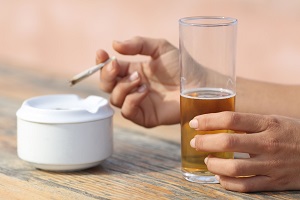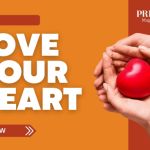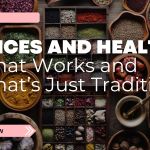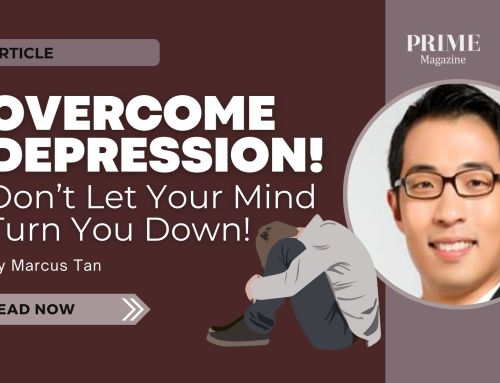Understanding how everyday habits can spiral — and what to do about it
Addiction is a chronic, global health concern that affects millions of people regardless of age or background. It doesn’t always begin with intent — sometimes, it starts as a coping mechanism for stress, anxiety, or loneliness. But over time, what begins as comfort or curiosity can grow into dependency.
Even when addiction is treated, the road to recovery can be long. Some individuals face lingering psychological and social challenges, while others risk relapse without continued support. Recognising the most common types of addiction — and how they impact the body and mind — is the first step toward awareness and prevention.

That first puff is all it takes!
1. Alcohol and Tobacco Addiction
That first puff or drink can become a daily habit.
Alcohol and tobacco are among the most widespread addictions globally. Many people turn to them for relaxation or social bonding, but prolonged use can quickly lead to dependence.
When deprived of nicotine or alcohol, individuals may experience irritability, anxiety, insomnia, or even physical withdrawal symptoms such as trembling or nausea. In severe cases, dependency can affect behaviour and relationships.
Medically, both substances depress the central nervous system. Heavy drinking increases the risk of liver disease, hypertension, stroke, and certain cancers. Long-term smoking contributes to respiratory and cardiovascular disease.
Recovery can be especially challenging because triggers — like the smell of smoke or social drinking environments — often rekindle cravings. That’s why ongoing support, counselling, and relapse-prevention planning are key to sustained recovery.

Betting more than you can afford to lose?
2. Gambling Addiction
When the thrill of risk becomes a costly habit.
Many people see gambling as harmless entertainment, but for some, it becomes an uncontrollable compulsion. Gambling addiction isn’t just about financial loss — it can cause emotional distress, strain family relationships, and even lead to legal issues.
Those affected may hide their behaviour or borrow money secretly to sustain their habit. In the long term, chronic gambling can lead to debt, job loss, depression, and anxiety. Research shows that excessive gamblers are also at a higher risk of suicidal thoughts due to overwhelming stress.
Early detection and open conversations are critical. Support groups and counselling can help individuals regain control and rebuild their confidence.

Into a world of your own
3. Internet and Gaming Addiction
Losing track of time in a digital world.
Technology has become part of daily life — but constant connectivity can blur the line between healthy use and dependency. Internet or gaming addiction often begins innocently but can grow into excessive screen time that disrupts sleep, productivity, and relationships.
Because online spending is often cashless, losses or consequences may go unnoticed until they accumulate. Moreover, social media and gaming platforms are designed to keep users engaged, sometimes leading to emotional detachment or escapism.
Setting boundaries, taking regular breaks, and maintaining offline hobbies are effective ways to restore balance. Digital detox periods — even short ones — help the brain reset and rebuild attention span.

For the want of pleasure!
4. Drug and Inhalant Addiction
Seeking relief but risking dependence.
Drug and inhalant addictions are not limited to illegal substances. They can also develop from overuse of legally prescribed medications such as painkillers, sleeping pills, or cough syrups.
When used beyond medical advice, these substances alter brain chemistry, leading to both psychological and physical dependence. Withdrawal can cause anxiety, insomnia, chills, and body weakness.
Illegal drugs, meanwhile, often come with added risks — including unpredictable purity, financial strain, and severe legal consequences. Professional detoxification and therapy are essential for safe recovery and long-term relapse prevention.

All for the want of “looking good”
5. Eating Disorders
When healthy habits become unhealthy obsessions.
While not always recognised as an addiction, eating disorders share many of the same psychological traits — obsessive behaviour, distorted self-perception, and difficulty stopping harmful patterns.
People experiencing eating disorders such as anorexia, bulimia, or compulsive overeating may face serious challenges to their physical and emotional well-being, and compassionate, ongoing support can make recovery possible. Beyond physical effects like malnutrition or obesity, eating disorders can also lead to hormonal imbalances, bone loss, and emotional distress.
Recovery involves more than nutrition — it requires addressing self-image, emotional triggers, and underlying stress through therapy and family support.
The Takeaway: Awareness Is Prevention
Addiction wears many faces — some visible, others hidden. Understanding the early signs can help individuals seek help before dependency takes root.
If you or someone you know is struggling, professional support is available. In Singapore, the National Addictions Management Service (NAMS) offers confidential advice and treatment at 6-RECOVER (6732 6837) or via www.nams.sg.
To explore more, read:
👉 Prevent Addiction: 5 Self-Control Tips That Work
👉 Overcoming Addiction: Steps to Quit and Stay Free
Together, awareness, prevention, and recovery form the path toward a healthier, addiction-free life.












